Shows

Math! Science! History!Hobbes vs. Boyle: Who Decides Scientific Facts?Episode Overview In the 1660s, two towering thinkers, Thomas Hobbes and Robert Boyle, clashed over a strange new machine: the air pump. What looked like a technical disagreement about air and vacuum quickly became something much larger. This episode examines how Boyle's experimental approach and Hobbes's philosophical skepticism shaped the foundations of modern science, and why their dispute still echoes today in debates over expertise, public trust, and the role of scientists in public policy. From the invention of "virtual witnessing" to modern struggles with misinformation, this is a story about how facts become believable, and what...
2026-02-0327 min
Math! Science! History!Hobbes vs. Boyle: Who Decides Scientific Facts?Episode Overview In the 1660s, two towering thinkers, Thomas Hobbes and Robert Boyle, clashed over a strange new machine: the air pump. What looked like a technical disagreement about air and vacuum quickly became something much larger. This episode examines how Boyle's experimental approach and Hobbes's philosophical skepticism shaped the foundations of modern science, and why their dispute still echoes today in debates over expertise, public trust, and the role of scientists in public policy. From the invention of "virtual witnessing" to modern struggles with misinformation, this is a story about how facts become believable, and what...
2026-02-0327 min
The HPS Podcast - Conversations from History, Philosophy and Social Studies of ScienceS5 E11 - Steven Shapin on the Social Life of Scientific KnowledgeThis week, Thomas Spiteri speaks with Steven Shapin, Professor Emeritus of the History of Science at Harvard. Shapin reflects on his path into the history and sociology of science and discusses the central concerns of his work: how knowledge is produced, the social foundations of trust in science, the embodied nature of knowledge, and the performance of expertise. He revisits Leviathan and the Air-Pump, co-authored with Simon Schaffer, outlining the Boyle–Hobbes controversy and showing how seventeenth-century scientific credibility depended on rhetoric, social standing, and performance, while highlighting the broader relevance of the book’s insights into the s...
2025-10-1950 min
Ahmad Hardyonidownload [ePub]’ Leviathan and the Air-Pump: Hobbes, Boyle, and the Experimental Life (Princeton Classics) BY Steven Shapin on Kindle New ChaptersLink To Download : https://readingbooks.my.id/?book=069117816X
Available versions: EPUB, PDF, MOBI, DOC, Kindle, Audiobook, etc.
Reading Leviathan and the Air-Pump: Hobbes, Boyle, and the Experimental Life (Princeton Classics)
Download Leviathan and the Air-Pump: Hobbes, Boyle, and the Experimental Life (Princeton Classics)
PDF/EBooks Leviathan and the Air-Pump: Hobbes, Boyle, and the Experimental Life (Princeton Classics)
You Can Download Or Read Free Books
2025-09-1300 min
Kathleen Collins – Indoor Voices PodcastEpisode 111: Nathan Lents on the queerness of animals
This is a great conversation between my brilliant John Jay colleagues Dr. Nathan Lents, Professor of Biology, and Dr. Olivera Jokić, Associate Professor of English and Gender Studies and Director of the Gender Studies Program. The occasion is the publication of Nathan’s most recent book, The Sexual Evolution: How 500 million years of sex, gender and mating shape modern relationships. The book is about sexual behavior throughout the animal kingdom, what animals have to tell us about sex and gender, and in every sense of the word, the queerness of animals.
The conversation ventures into matters such as...
2025-05-1200 min
The University of Chicago Press PodcastSteven Shapin, "Eating and Being: A History of Ideas about Our Food and Ourselves" (U Chicago Press, 2024)What we eat, who we are, and the relationship between the two. Eating and Being: A History of Ideas about Our Food and Ourselves (University of Chicago Press, 2024) is a history of Western thinking about food, eating, knowledge, and ourselves. In modern thought, eating is about what is good for you, not about what is good. Eating is about health, not about virtue. Yet this has not always been the case. For a great span of the past—from antiquity through about the middle of the eighteenth century—one of the most pervasive branches of medicine was known as dietetics...
2025-01-0842 min
New Books in FoodSteven Shapin, "Eating and Being: A History of Ideas about Our Food and Ourselves" (U Chicago Press, 2024)What we eat, who we are, and the relationship between the two. Eating and Being: A History of Ideas about Our Food and Ourselves (University of Chicago Press, 2024) is a history of Western thinking about food, eating, knowledge, and ourselves. In modern thought, eating is about what is good for you, not about what is good. Eating is about health, not about virtue. Yet this has not always been the case. For a great span of the past—from antiquity through about the middle of the eighteenth century—one of the most pervasive branches of medicine was known as dietetics...
2025-01-0842 min
New Books in AnthropologySteven Shapin, "Eating and Being: A History of Ideas about Our Food and Ourselves" (U Chicago Press, 2024)What we eat, who we are, and the relationship between the two. Eating and Being: A History of Ideas about Our Food and Ourselves (University of Chicago Press, 2024) is a history of Western thinking about food, eating, knowledge, and ourselves. In modern thought, eating is about what is good for you, not about what is good. Eating is about health, not about virtue. Yet this has not always been the case. For a great span of the past—from antiquity through about the middle of the eighteenth century—one of the most pervasive branches of medicine was known as dietetics...
2025-01-0844 min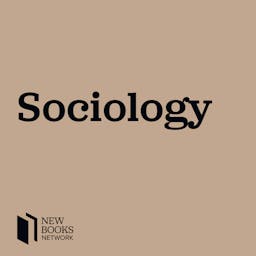
New Books in SociologySteven Shapin, "Eating and Being: A History of Ideas about Our Food and Ourselves" (U Chicago Press, 2024)What we eat, who we are, and the relationship between the two. Eating and Being: A History of Ideas about Our Food and Ourselves (University of Chicago Press, 2024) is a history of Western thinking about food, eating, knowledge, and ourselves. In modern thought, eating is about what is good for you, not about what is good. Eating is about health, not about virtue. Yet this has not always been the case. For a great span of the past—from antiquity through about the middle of the eighteenth century—one of the most pervasive branches of medicine was known as dietetics...
2025-01-0844 min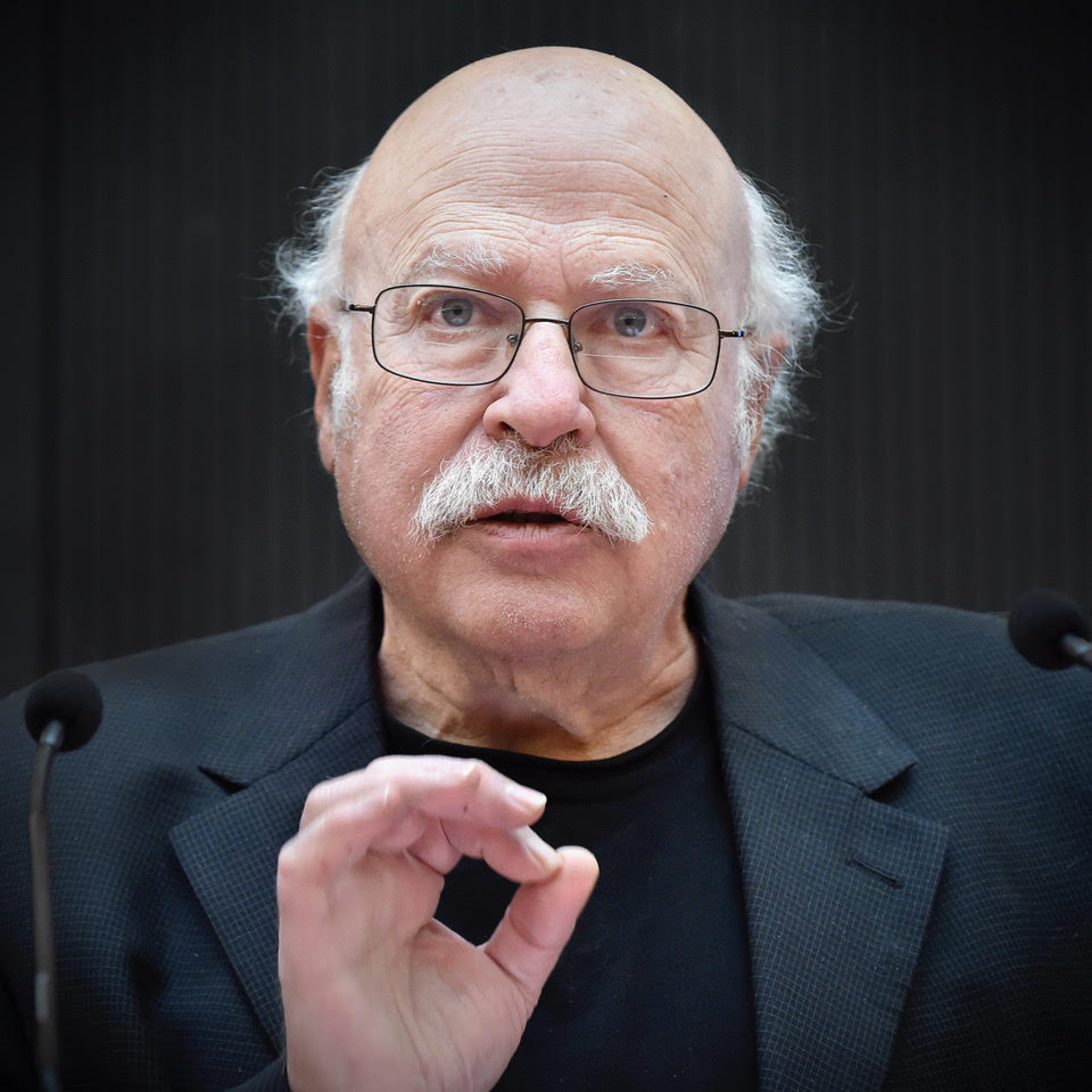
The Well-Seasoned Librarian: Mixing Cookbooks and ConversationSteven Shapin Ph.D (Eating and Being: A History of Ideas about Our Food and Our Selves) Well Seasoned Library Season 15 Episode 12Author Bio: Steven Shapin joined Harvard in 2004 after previous appointments as Professor of Sociology at the University of California, San Diego, and at the Science Studies Unit, Edinburgh University.
His books include Leviathan and the Air-Pump: Hobbes, Boyle, and the Experimental Life (Princeton University Press, 1985 [new ed. 2011]; with Simon Schaffer), A Social History of Truth: Civility and Science in Seventeenth-Century England (University of Chicago Press, 1994), The Scientific Revolution (University of Chicago Press, 1996; now translated into 16 languages), Wetenschap is cultuur (Science is Culture) (Amsterdam: Balans, 2005; with Simon Schaffer), The Scientific Life: A Moral History of a Late Modern...
2024-12-0332 minPerspectives on Science50+2 years of Scholarship: UPenn Dept of the Hist and Soc of Sci - Plenary PresentationsIn October 2022, the University of Pennsylvania HSS Department commemorated it's 50th anniversary, delayed two years because of the COVID-19 pandemic. Over two days, alumni, faculty, and current students gathered to discuss the department's history, its contributions to the field and new directions scholarship might take.
In this episode:
Chair: M. Susan Lindee
Department Chair, Janice and Julian Bers Professor, HSS
Steven Shapin
Franklin L. Ford Research Professor of the History of Science, Harvard University
Keith Wailoo
Henry Putnam University Professor of History and Public Affairs, Department of History, Princeton University
For more information on this and other topics, please see...
2024-11-0544 min
Nature PodcastREBROADCAST: A brief history of politics and scienceThis series was originally broadcast in 2020.Science and politics are not easy bedfellows - "Stick to the science" is a three part series which aims to find out why.In this episode we delve into the past, and uncover the complicated relationship between science, politics and power. Along the way, we come up against some pretty big questions: what is science? Should science be apolitical? And where does Nature fit in?This episode was produced by Nick Petrić Howe, with editing from Noah Baker and Benjamin Thompson. it featured contributions fro...
2024-11-0128 min
The HPS Podcast - Conversations from History, Philosophy and Social Studies of ScienceS4 Ep 3 - Simon Schaffer on 'Leviathan and the Air-Pump: 40 years later' (Part 2)This episode forms Part 2 of our extended interview with the celebrated historian of science, and master communicator, Professor Simon Schaffer.Today, we continue to focus our discussion on the book Simon co-wrote with Steven Shapin in the early 1980s, Leviathan and the Air-Pump. Simon reveals fascinating insights into the production of the book, including his many deep dives into rare books collections, as well as the back and forth of typewritten pages between Simon in London and Steven in Edinburgh. Simon also talks about the rise to prominence of the publication, highlighting the crucial role...
2024-10-0226 min
The HPS Podcast - Conversations from History, Philosophy and Social Studies of ScienceS4 Ep 2 - Simon Schaffer on 'Leviathan and the Air-Pump: 40 years later' (Part 1)This episode is the first of two in which the celebrated Professor of History of Science, Simon Schaffer, discusses the famous HPS publication, Leviathan and the Air-Pump: Hobbes, Boyle and the Experimental Life, which Simon co-wrote with another esteemed HPS scholar, Steven Shapin, in the early 1980s. The book went on to become one of the most well-known across both HPS and STS, with next year marking 40 years since its first release.In todays episode, Simon discusses his own academic story, introduces us to the books main themes and aims, and muses on why it w...
2024-09-2526 min
日光之上自由主義的恐懼EP2我們從來沒有進步過我們為何如此看重「進步」的價值?我們真的進步了嗎?科學真的是文明的標誌嗎?在實驗科學所形塑的文化背後有甚麼其實沒被解決的事情?恩隆與徐老師一起繼續帶大家討論這些深入又精彩的內容!
0:00 特別公告、回顧上集:中世紀到現代的思維轉變
6:08 現代人認為自己站在梯子的頂端:創新與異端
9:28 科學主義作為範例:科學興起與基督新教解經傳統的關係
18:28 科學家這個身分的出現
21:00 霍布斯與波以耳的爭論:氣泵實驗
27:01 霍布斯反對的理由
34:53 實驗科學的文化如何建立現代性的文化
42:36 實際應用:本質上的神學衝突在現代社會並沒有被解決
49:40 現代性的程序提供的益處和教會中應用的反思
節目中提及的一些人名補充:
彼得.哈里森(Peter Harrison):澳洲歷史與哲學教授,研究科學與宗教史,著有<聖經、新教與自然科學的興起>等書。
湯瑪斯.霍布斯(Thomas Hobbes):十七世紀英國政治哲學家和法學家,其著作<利維坦>在當時極具影響力。崇尚幾何學、試圖以幾何數學論證一套國家社會的主權概念,並藉此解決宗教改革後失控的良心的問題。
羅伯特.波以耳(Robert Boyle):與霍布斯同時期的愛爾蘭哲學家,英國皇家學會初始成員之一,建立了當代的實驗科學的典範。
埃萬傑利斯塔·托里拆利(Evangelista Torricelli):十七世紀的義大利數學家、物理學家,發明了水銀氣壓計。
謝平(Steven Shapin)與夏佛(Simon J. Schaffer):分別為哈佛大學與劍橋大學的科學史教授,共同著有<利維坦與空氣泵浦:霍布斯、波以耳與實驗生活>一書。
#日光之上
#自由主義的恐懼
#現代社會的矛盾
#科學主義的起源
#被隱藏的敵意
#挑戰你世界觀的電台
2024-08-0854 min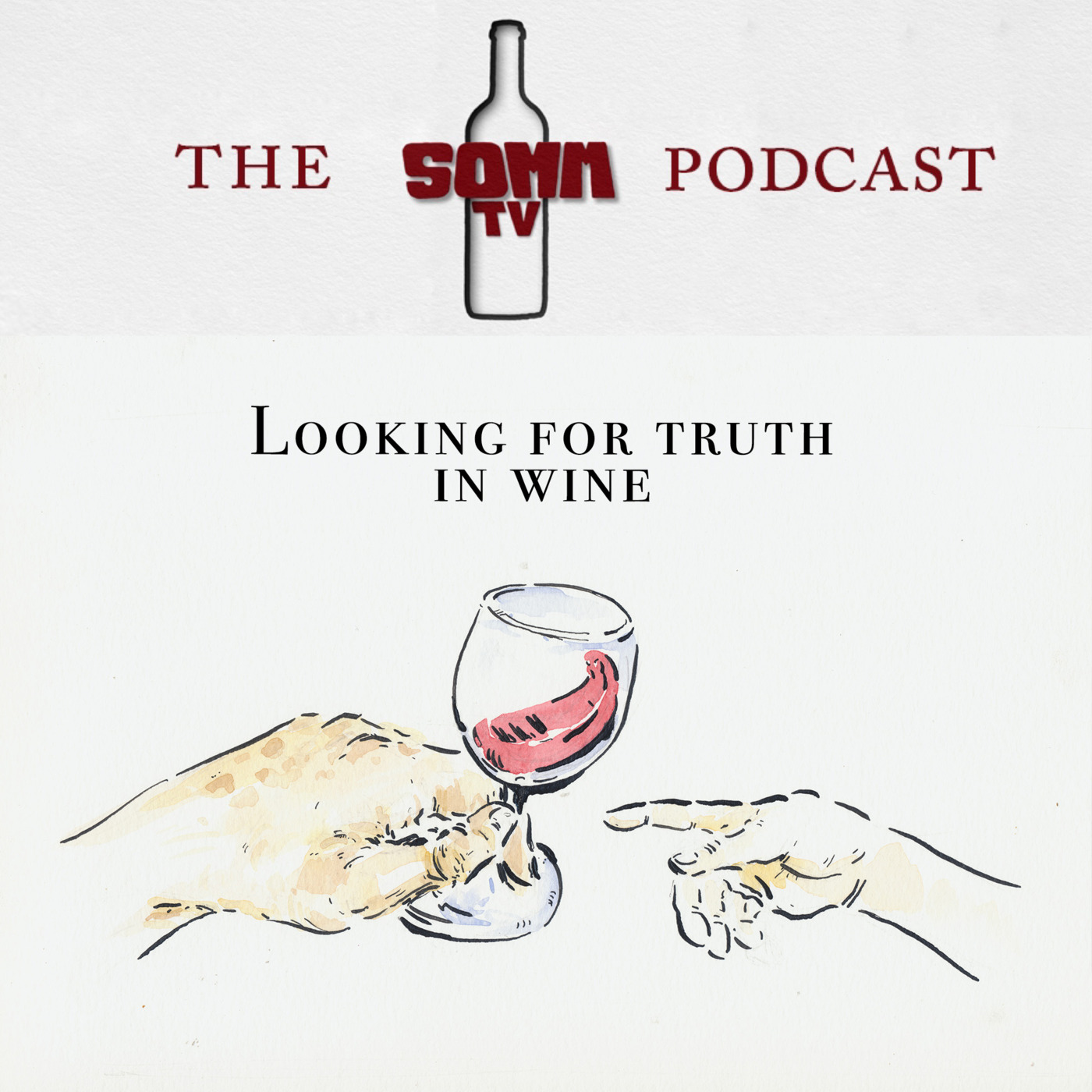
SOMM TV wine & foodLooking for Truth in WineHow much of what we believe about wine is actually true? On today's podcast Jason Wise is joined by renowned author and professor of the history of science at Harvard University - Steven Shapin. As a historian and a lover of wine, Steven has asked some profound questions about our relationship with the wine we drink. Lets go deep into the glass and see what we find. Don't forget to subscribe to SOMMTV.com to watch all our shows and films on all streaming devices via our app.
2024-04-1823 min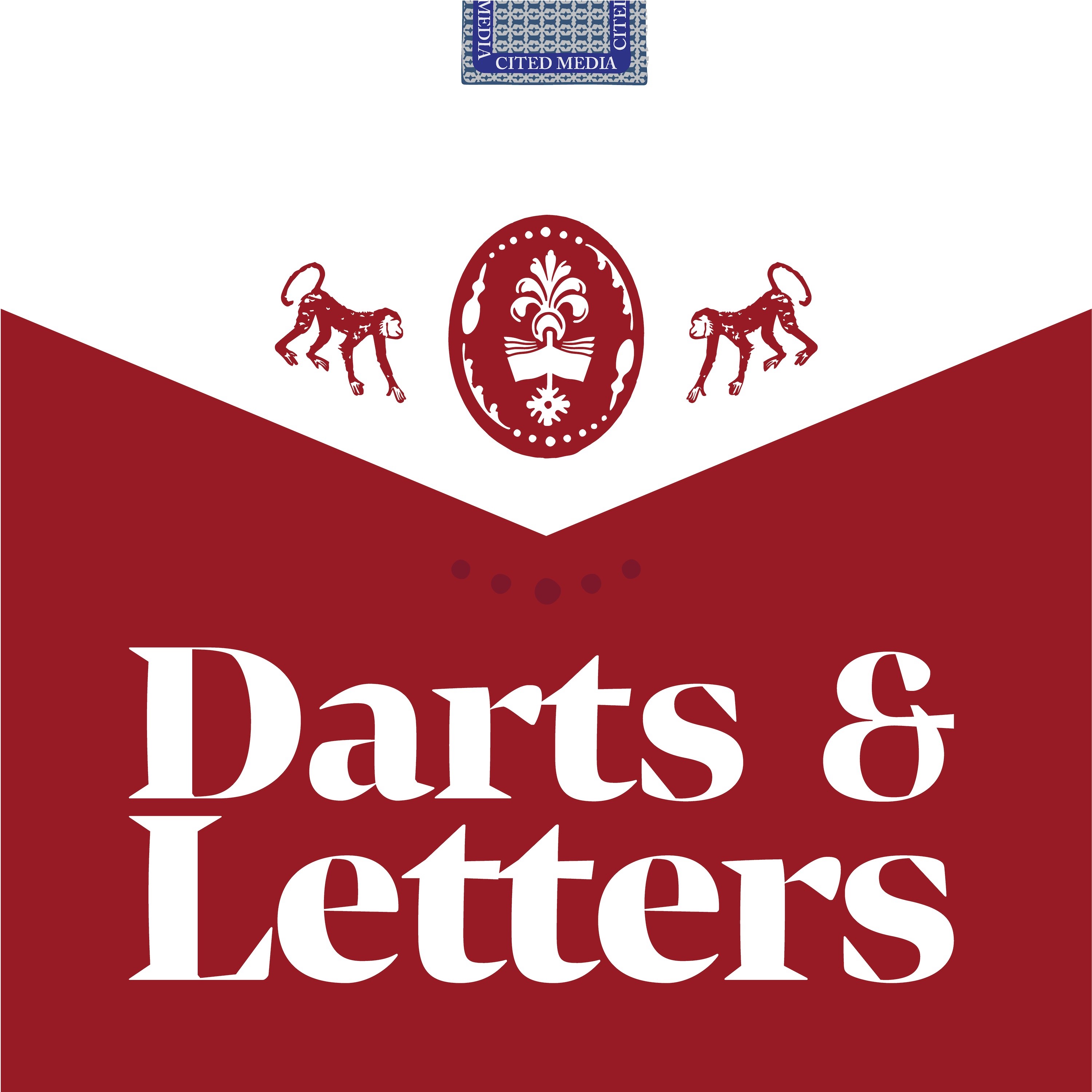
Darts and LettersMisinformed: The Lab Leak & the Politics of Misinformation (ft. Branko Marcetic & Nicole M. Krause)
That was a bit of a 180°, wasn’t it? The COVID-19 lab leak theory went from being dismissed as mere misinformation, to now a credible matter of debate amongst media, scientific, and intelligence organizations. What’s changed, and what does this teach us about science journalism and science communication? Is it time to let go of our obsession over “misinformation”? First, Jacobin staff writer Branko Marcetic lays out the political problems with the idea of misinformation. Later, Nicole M. Krause, a PhD candidate focussing on science communication, looks at conceptual problems in the research itself. What’s “True,” and who gets to dec...
2023-05-081h 00
CyberSundhedChatGPT Er Ikke Intelligent - Mikala Hansbøl | CybersundhedSkal vi være bange for ChatGPT? Kan vi stole på ny teknologi? Hvordan snakker vi om, ser vi på, og oplever teknologi?
Mikala Hansbøl er uddannelsesforsker som specialiserer sig i E-learning, teknoantropologi og pædagogisk antropologi, med en pædagogisk ph.d. grad i uddannelsesforskning. Hun ved, hvad hun snakker om, så om sagt.
Det er svært at vide, hvordan vi skal agere i forhold til ny teknologi - det kan være svært at vide, om det er godt eller dårligt, eller bare hvilken effekt det har på os, og hvilken inflydelse det vil have i f...
2023-04-201h 21
Culture GabfestBad Sisters, Bad SonsThis week, the panel begins by settling into the scenic Irish mystery of Bad Sisters. Then, the panel begrudgingly watches the Breitbart funded uh…indie film…My Son Hunter which may end up being the most interesting text the panel has discussed in a while. Finally, the panel is joined by co-host of Slate’s Working podcast and special friend of the pod, June Thomas, to discuss the recent death of Queen Elizabeth II.In Slate Plus, the panel discusses the 2022 Emmy Awards.Email us at culturefest@slate.com.EndorsementsDana: A real...
2022-09-1456 min
衣櫥裡的讀者52.【科學史】用望遠鏡窺探星空時,你仍會感到驚奇嗎?|《科學革命》🎵 本集內容
00:30 關於爸爸送我的第一台望遠鏡
03:01 在我們的年代,望遠鏡是尋常物品
04:19 望遠鏡剛發明時,如何證明它的可靠性?
16:00 Steven Shapin 的科學史研究與「知識確定性」問題
18:03 真假博物學的興起
27:36 「知識就是力量」是對誰說的?
30:36 「實驗」如何成為了知識生產的核心?
34:00 教會、國家、學會、大學的多重角力,創造了「科學」
40:49 本集音樂介紹:貝多芬第 29 號鋼琴奏鳴曲第一樂章
📖 本集圖書
原文書名:The Scientific Revolution
作者:Steven Shapin
出版年:1996
出版者:The University of Chicago Press
中文版:《科學革命:他們知道了什麼、怎麼知道的,他們用知識做什麼》(林巧玲、許宏彬譯,左岸文化,2016)
🎵 本集音樂
Beethoven: Piano Sonata no. 29 in B-flat major ‘Hammerklavier’, Op. 106, I. Allegro. Piano: Peter Bradley-Fulgoni. Copyright: Creative Commons Attribution-NonCommercial-NoDerivs 4.0.
🔍 提及作品
《福爾摩沙變形記》(George Psalmanaazaar 著,薛絢譯。大塊文化:2016)
📣 每週一更新。
📝 留言給我:https://closetreader.com/comment
📦 贊助箱:https://p.ecpay.com.tw/9A678A3
📞 聯絡我:closetreader123@gmail.com
--
Hosting provided by SoundOn
2022-06-061h 08
Wisskomm-Quartett – Nachdenken über WissenschaftskommunikationFolge 11: Wissenschaft Backstage – Entstehungsprozesse kommunizieren?Wie sollte man Wissenschaft vermitteln – autoritativ, als verlässliche Quelle wichtiger Ergebnisse? Oder schon im Prozess, mit all ihren methodischen Limitationen, Unsicherheiten und fachlichen Kontroversen? Die Zeiten der „Ingelfinger Rule“, nach der zuerst der Erkenntnisprozess abgeschlossen, dann das Ergebnis wissenschaftlich publiziert und erst danach der Öffentlichkeit vorgestellt werden sollte, sind offenbar passé. Vieles spricht dafür, neben den Ergebnissen auch den Entstehungsprozess zu veranschaulichen, wie Steve Shapin dies bereits 1992 aus der Sicht der Wissenschaft gefordert hat. Eine aktuelle Studie von Senja Post et alt. beleuchtet die Sicht der Öffentlichkeit. Sie unterscheidet die unterschiedlichen Informationsbedarfe von Menschen, die verlässliche Informatione...
2022-04-081h 01
Space JunkSpace Junk - Space, Law, and Morality (with Duncan Blake)CONTENT WARNING: please be aware that this episode includes detailed discussions of wartime killing, and of targeted airstrikes in particular.In this episode I speak to Wing Commander Duncan Blake who spent 22 years as a legal officer in the Royal Australian Air Force, most recently in the Middle East where he provided legal support to aerial targeting operations in Iraq and Syria. He served as the Deputy Director of Operations and International Law for the Australian Department of Defence, providing operations and international law advice and support at the highest levels within Defence and across government...
2022-01-1351 min
Alle Podcasts der ZEIT STIFTUNG BUCERIUSBjörk versöhnt Natur und Technik: »The Modern Things« und die Zukunft des DesignsZEIT-Stiftung - Alle Podcasts: Zeitgeister
In Ihrem Song »The Modern Things« von 1995 präsentiert Björk eine surreale Phantasie: Autos und andere moderne Gegenstände habe es schon immer gegeben. Allerdings warteten sie lange versteckt in einem Berg auf ihren Auftritt. Der Podcast fragt, ob das mehr sein könnte als ein Märchen – hängen Natur und Technik vielleicht enger zusammen als wir denken? Und was muss passieren, um die Entfremdung der Moderne von ihren Ursprüngen zu überwinden?
Gast:
Tulga Beyerle ist seit 2018 Direktorin des Museum für Kunst und Gewerbe Hamburg. Sie wurde 1964 in Wien geboren...
2021-07-1928 min
ZeitgeisterBjörk versöhnt Natur und Technik: »The Modern Things« und die Zukunft des DesignsZeitgeister
In Ihrem Song »The Modern Things« von 1995 präsentiert Björk eine surreale Phantasie: Autos und andere moderne Gegenstände habe es schon immer gegeben. Allerdings warteten sie lange versteckt in einem Berg auf ihren Auftritt. Der Podcast fragt, ob das mehr sein könnte als ein Märchen – hängen Natur und Technik vielleicht enger zusammen als wir denken? Und was muss passieren, um die Entfremdung der Moderne von ihren Ursprüngen zu überwinden?
Gast:
Tulga Beyerle ist seit 2018 Direktorin des Museum für Kunst und Gewerbe Hamburg. Sie wurde 1964 in Wien geboren. Nach ihrem Magister-Absc...
2021-07-1928 min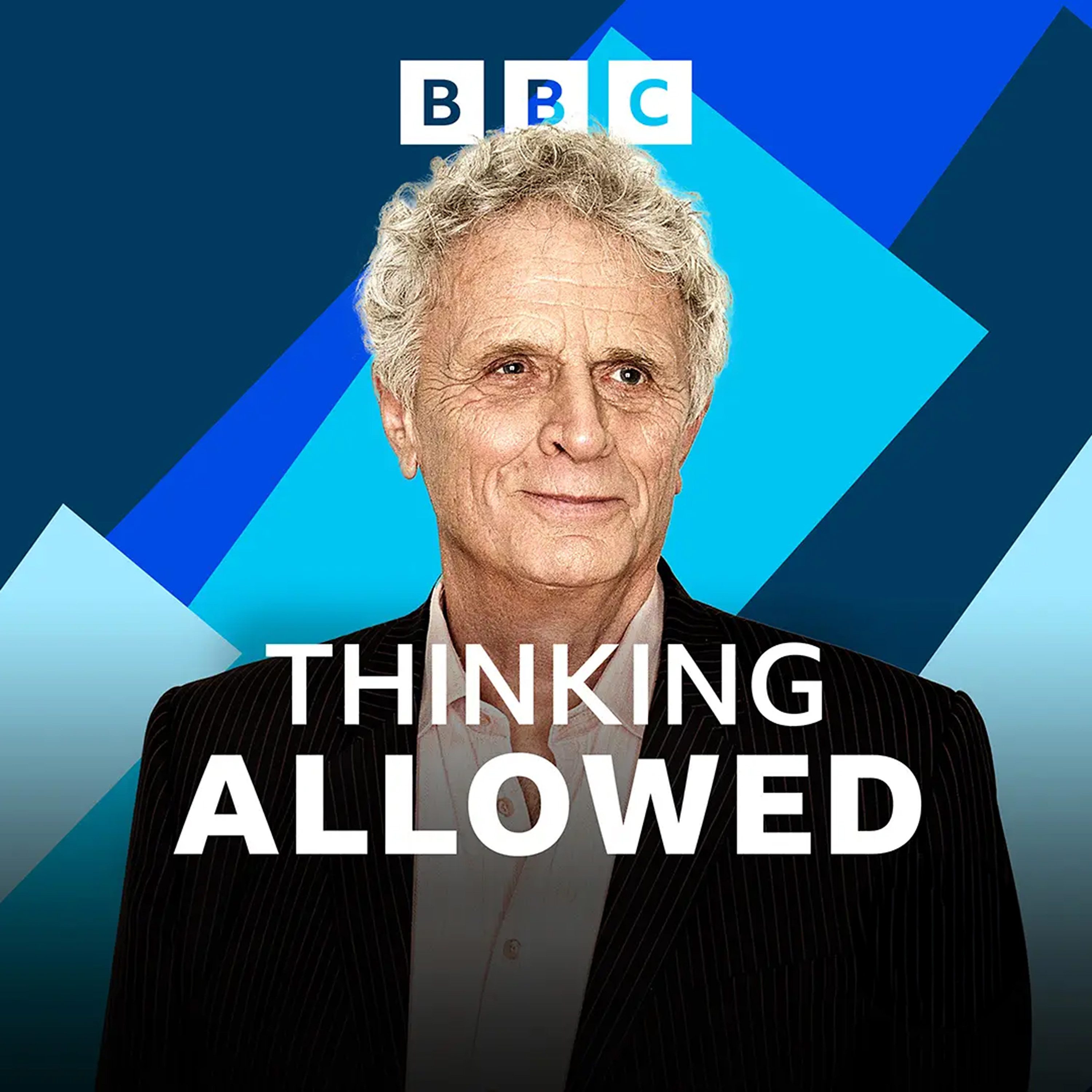
Thinking AllowedThe Handshake - Social InteractionThe handshake & social interaction. Laurie Taylor explores the history and meaning of a commonplace ritual which has played a role in everything from meetings with uncontacted tribes to political assassinations. He's joined by the paleoanthropologist, Ella Al-Shamahi, who asks what this everyday, friendly gesture can tell us about the enduring power of human contact. They're joined by Steven Shapin, Franklin L. Ford Research Professor of the History of Science at Harvard University, & author of a recent article which considers the way in which social distancing and self isolating have put us 'out of touch' with each other. As he...
2021-06-0929 min
The Science Slot MachineScientific MisconductIn this episode, the Science Slot Machine team discusses the interview with professor Ulrike Felt further and explores pathways to think about science, different practices, and scientific misconduct 👀
But first, we are happy to announce that we are bringing on a new team member! In this episode, fellow STS master’s student Nora joins Robbie, Costa, and Harry for the first time 👯👯 Get to know more about her in the episode 👋
Here, the four of us discuss various aspects of scientific misconduct including plagiarism, false data fabrication, and issues of (co)authorship ☝
While we also touch up...
2021-03-0747 min
Nature PodcastA brief history of politics and scienceScience and politics are not easy bedfellows - "Stick to the science" is a three part series which aims to find out why.In this episode we delve into the past, and uncover the complicated relationship between science, politics and power. Along the way, we come up against some pretty big questions: what is science? Should science be apolitical? And where does Nature fit in?Tell us what you think of this series: https://go.nature.com/2HzXVLcThis episode was produced by Nick Howe, with editing from Noah Baker an...
2020-10-2828 min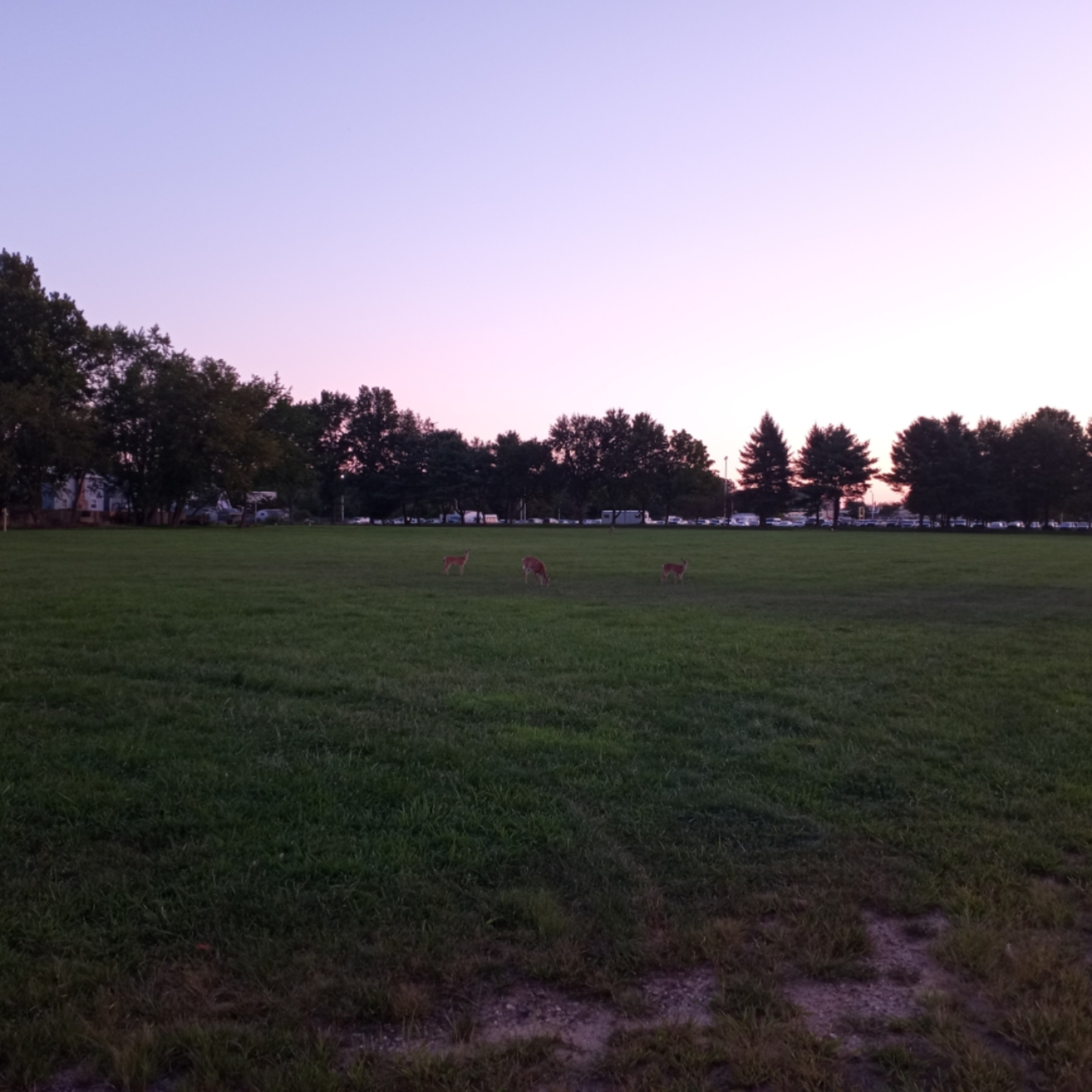
stream of randomstre s1e77 history of science liveNew Books Network: Steven Shapin, "The Scientific Revolution" (U Chicago Press, 2018) https://newbooksnetwork.com/category/new-books-network/
2020-08-261h 10
New Books in ScienceSteven Shapin, "The Scientific Revolution" (U Chicago Press, 2018)“There was no such thing as the Scientific Revolution, and this is a book about it.” With this provocative and apparently paradoxical claim, Steven Shapin begins The Scientific Revolution (University of Chicago Press, 2018), his bold, vibrant exploration of the origins of the modern scientific worldview, now updated with a new bibliographic essay featuring the latest scholarship.Steven Shapin is the Franklin L. Ford Research Professor of the History of Science at Harvard University. His books include Leviathan and the Air-Pump (with Simon Schaffer), A Social History of Truth: Civility and Science in Seventeenth-Century England, and The Scientific Life...
2020-08-261h 14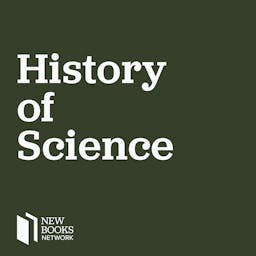
New Books in the History of ScienceSteven Shapin, "The Scientific Revolution" (U Chicago Press, 2018)“There was no such thing as the Scientific Revolution, and this is a book about it.” With this provocative and apparently paradoxical claim, Steven Shapin begins The Scientific Revolution (University of Chicago Press, 2018), his bold, vibrant exploration of the origins of the modern scientific worldview, now updated with a new bibliographic essay featuring the latest scholarship.Steven Shapin is the Franklin L. Ford Research Professor of the History of Science at Harvard University. His books include Leviathan and the Air-Pump (with Simon Schaffer), A Social History of Truth: Civility and Science in Seventeenth-Century England, and The Scientific Life...
2020-08-261h 11
The University of Chicago Press PodcastSteven Shapin, "The Scientific Revolution" (U Chicago Press, 2018)“There was no such thing as the Scientific Revolution, and this is a book about it.” With this provocative and apparently paradoxical claim, Steven Shapin begins The Scientific Revolution (University of Chicago Press, 2018), his bold, vibrant exploration of the origins of the modern scientific worldview, now updated with a new bibliographic essay featuring the latest scholarship.Steven Shapin is the Franklin L. Ford Research Professor of the History of Science at Harvard University. His books include Leviathan and the Air-Pump (with Simon Schaffer), A Social History of Truth: Civility and Science in Seventeenth-Century England, and The Scientific Life...
2020-08-261h 14
COR ON COLLABORATIONCOR ON Collaboration. V04. Urbanismo, virus e higienismo#urbanismo #ciudad #higienismo #distanciamientosocial #confinamiento #historia #sigloXIX #pandemia #futuro
En este episodio indagamos sobre los orígenes de los conceptos de confinamiento, distanciamiento social e higiene individual como soluciones urbanas a una crisis de salud pública: la ciudad higienista. Y desde ahí, pondremos en crisis tanto ese modelo S.XIX aún vigente, como la dicotomía clásica naturaleza-ciudad, preguntándonos por nuevos contratos sociales y modelos.
Alberto Corsín (CSIC) nos comparte una historia de la ciudad higienista desde mediados del S. XIX. Adolfo Estalella (UAM) plantea la controversia en torno a enfermedad y urbanismo, sugiriendo el conflict...
2020-03-2835 min
LitSciPod: The Literature and Science PodcastEpisode 2 - The Work of KnowingProduced by: Catherine Charlwood (@DrCharlwood) and Laura Ludtke (@lady_electric). Music composed and performed by Gareth Jones.
Laura and Catherine are joined by a special guest: Dr Olivia Smith (@OliveFSmith), a Wellcome Trust Research Fellow based at Wolfson College, University of Oxford. Olivia discusses her work on early modern life writing and biology, exploring the importance of cognition and recognition to the pre-history of scientific research. In a wide-ranging discussion, she covers archives, letters, objects philosophical and scientific, and the relationship of the early modern imagination to interdisciplinarity. Olivia also talks about her work with the charity Arts Emergency (@artsemergency...
2020-03-0654 min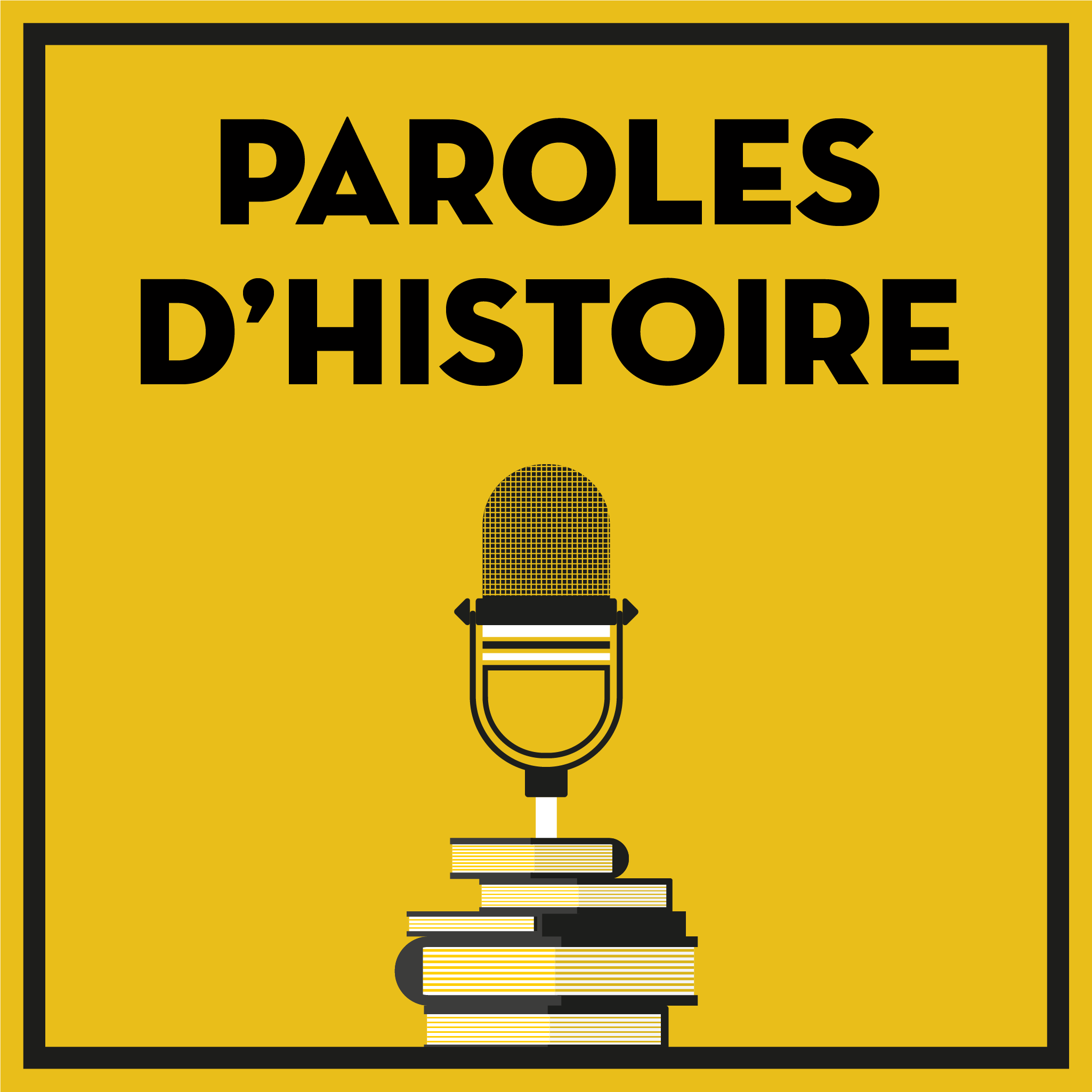
Paroles d'histoire70. Sciences et savoirs à l’époque moderne, avec Axelle ChassagnetteL’invitée : Axelle Chassagnette, Maîtresse de conférences en histoire moderne, Université Lumière Lyon 2
Le thème : Sciences et techniques au XVIIe-XVIIIe siècles, nouvelle question au programme de 2nde pour la rentrée 2019, en lien avec le chapitre rédigé dans l’ouvrage historiographique : Sébastien Cote, Emmanuelle Picard (dir.), Regards historiques sur Nations empires et nationalités de 1789 aux lendemains de la Première Guerre mondiale, Paris, Nathan, 2019.
La discussion :
Le regard d’une universitaire spécialiste de ces questions sur l’inscription au programme de 2nde de l’histoire des sciences...
2019-07-2442 min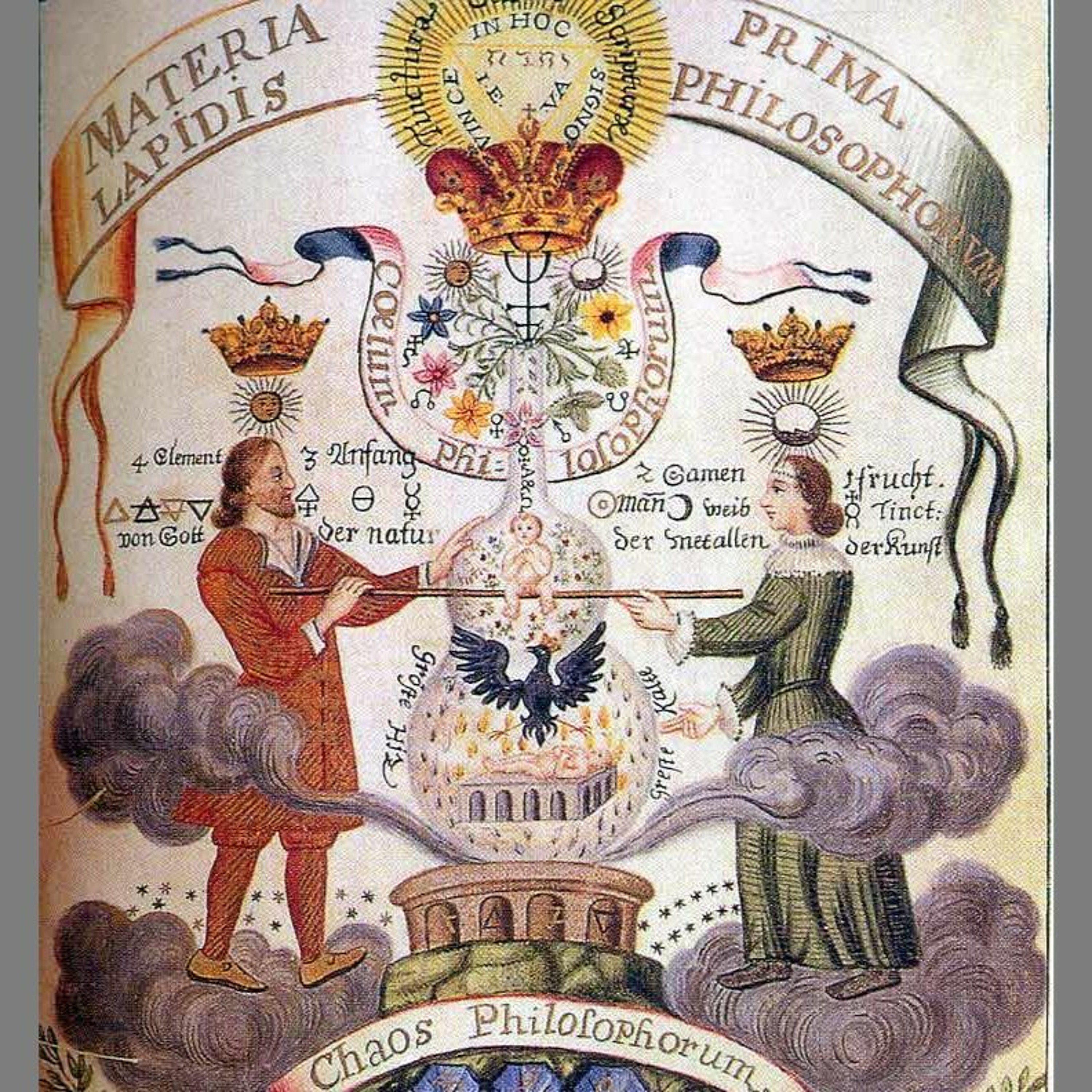
Historiansplaining: A historian tells you why everything you know is wrongScientific Revolution, Part 1 -- Alchemy and Apocalypse, 1500-1660We unearth the tangled roots of the earliest forms of modern science, beginning with the radical alchemical theories of the rabble-rousing healer called Paracelsus, and running through the heated debates over Galileo's astronomy, which broke down the distinction between the earth and the heavens. Due to these shocks, the old teleological, or purpose-driven, scheme of the world broke down, giving way to a free-for-all of speculation and apocalyptic excitement.
We question the historical meaning of the concept of "science," and consider how modern-day pop scientists like Neil DeGrasse Tyson portray the past selectively in order to build the myth of...
2018-08-101h 29
Conspiracy and DemocracySimon Schaffer - 27 October 2015 - Imitation Games: Conspiratorial Sciences and Intelligent MachinesImitation Games: Conspiratorial Sciences and Intelligent Machines
A public lecture by Professor Simon Schaffer (University of Cambridge)
Please note the later start time of 5.30pm for this lecture.
Abstract
Influential public declarations about the normative system of the sciences produced in the mid-twentieth century by authorities such as J D Bernal ('The social function of science', 1939) and R K Merton ('Science and technology in a democratic order', 1942) urged the fundamental contrast between science and secrecy: what Merton significantly labeled 'communism' meant that scientists must and did publicise and share their work as widely as possible. A decade later, at a...
2015-11-051h 18
Conspiracy and DemocracySimon Schaffer - 27 October 2015 - Imitation Games: Conspiratorial Sciences and Intelligent MachinesImitation Games: Conspiratorial Sciences and Intelligent Machines
A public lecture by Professor Simon Schaffer (University of Cambridge)
Please note the later start time of 5.30pm for this lecture.
Abstract
Influential public declarations about the normative system of the sciences produced in the mid-twentieth century by authorities such as J D Bernal ('The social function of science', 1939) and R K Merton ('Science and technology in a democratic order', 1942) urged the fundamental contrast between science and secrecy: what Merton significantly labeled 'communism' meant that scientists must and did publicise and share their work as widely as possible. A decade later, at a...
2015-11-051h 18
TORCH | The Oxford Research Centre in the HumanitiesLeviathan and the Air Pump: HighlightsHistorians of Science David Wootton and Michael Hunter review the controversial book 50 years on Robert Boyle's air-pump experiments in 1659 provoked a lively debate over the possibility of a vacuum. The air-pump, a complicated and expensive device, became an emblem of the new experimental science that was promoted by the Royal Society. However, the philosopher Thomas Hobbes challenged both the validity of Boyle’s experiment and the philosophical foundations of this new approach to science.
In their controversial book Leviathan and the Air-Pump (1985) Steven Shapin and Simon Schaffer took up Hobbes’s case, arguing that experimental findings depend for their validity on t...
2015-05-2804 min
TORCH | The Oxford Research Centre in the HumanitiesLeviathan and the Air Pump: Thirty Years OnThe historian of science David Wootton reviews the controversial dispute between Robert Boyle and Thomas Hobbes, followed by a reply from Boyle's biographer Michael Hunter Robert Boyle's air-pump experiments in 1659 provoked a lively debate over the possibility of a vacuum. The air-pump, a complicated and expensive device, became an emblem of the new experimental science that was promoted by the Royal Society. However, the philosopher Thomas Hobbes challenged both the validity of Boyle’s experiment and the philosophical foundations of this new approach to science. In their controversial book Leviathan and the Air-Pump (1985) Steven Shapin and Simon Schaffer took up Ho...
2015-05-1255 min
Thinking AllowedWine tasting; US philanthropyPhilanthropy is most often associated with the fight against poverty and disease. But a new book claims that the philanthropic foundations established by the major American industrialists - Rockefeller, Carnegie and Ford - have also promoted American values across the world. From Chile to Indonesia, they've invested in the creation of intellectual elites with a neo liberal agenda. And, it's claimed, they've had a significant role on the international stage, transforming America from a parochial nation into a global leader. Professor Inderjeet Parmar explores the power of US philanthropy with Laurie Taylor. Also, what does the language of wine...
2012-05-2328 min
Sensing the Unseen5.4 The Evanescent: Tasting - Steven Shapin (discussant)Commentary from Steven Shapin on Weiss's presentation for The Evanescent session of the Sensing the Unseen seminar.
2011-03-1812 min
The New York Academy of SciencesAre You What You Eat?Harvard science historian Steven Shapin discusses the history of food science and the human view of nutrition from dietetics to modern moderation in this podcast presented by The Sackler Institute for Nutrition Science at the New York Academy of Sciences.
2011-02-1813 min
Spring 2011 | Public lectures and events | Audio and pdfThe Long History of Dietetics: thinking sociologically about food, knowledge and the selfContributor(s): Professor Steven Shapin | A survey and interpretation of historically changing ideas about food, knowledge, and the self. Steven Shapin is Franklin L Ford Professor of the History of Science at Harvard University.
2011-01-121h 26
Spring 2011 | Public lectures and events | VideoThe Long History of Dietetics: thinking sociologically about food, knowledge and the selfContributor(s): Professor Steven Shapin | A survey and interpretation of historically changing ideas about food, knowledge, and the self. Steven Shapin is Franklin L Ford Professor of the History of Science at Harvard University.
2011-01-121h 26
Thinking AllowedCosmopolitanism - DieteticsMany of our global problems - from climate change to terrorism - require international not local solutions. Yet the world is increasingly fractured by nationalism. The political scientist, David Held, has a new book which explores cosmopolitan values. He tells Laurie Taylor why we should regard ourselves as citizens of the world rather than members of nations. Also, should we take responsibility for our own health, bodies and nutrition? Steven Shapin, Professor of the History of Science, talks about Dietetics - a branch of traditional western medicine which sought to prevent illness rather than find a cure. Originating in...
2011-01-1227 min
U Chicago Press Audio WorksSteven Shapin on the Scientific VocationSteven Shapin interviewed about his book, The Scientific Life: A Moral History of a Late Modern Vocation, published by the University of Chicago Press. Interview by Chris Gondek.
2008-10-2020 minScience News Channel on GigaDial PublicSteven ShapinDavid Cayley in conversation with historian Steven Shapin. He's one of the authors of "Leviathan and the Air Pump", a book which has helped a generation of readers to re-imagine the Scientific Revolution of the 17th century. Steven Shapin talks about the authority of science in the 17th century and today.
2008-04-1300 min